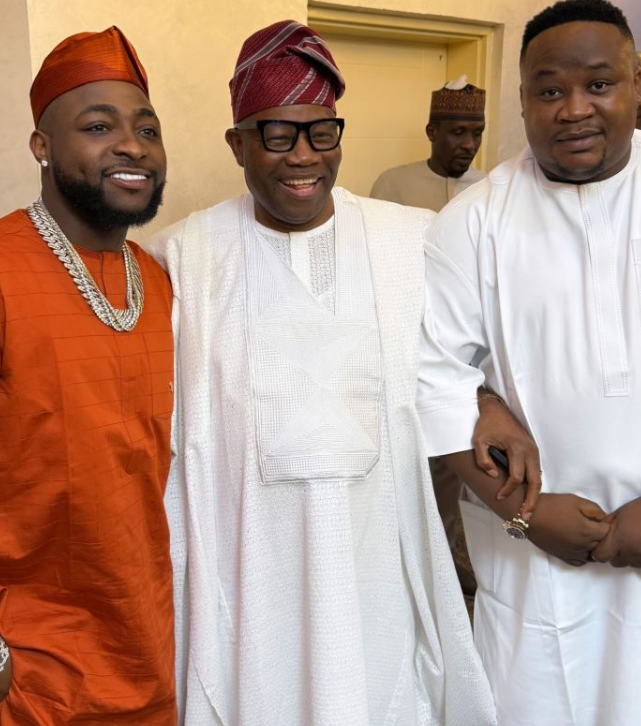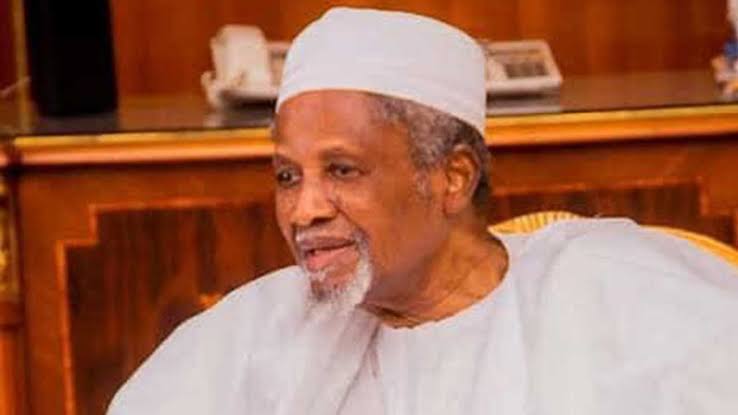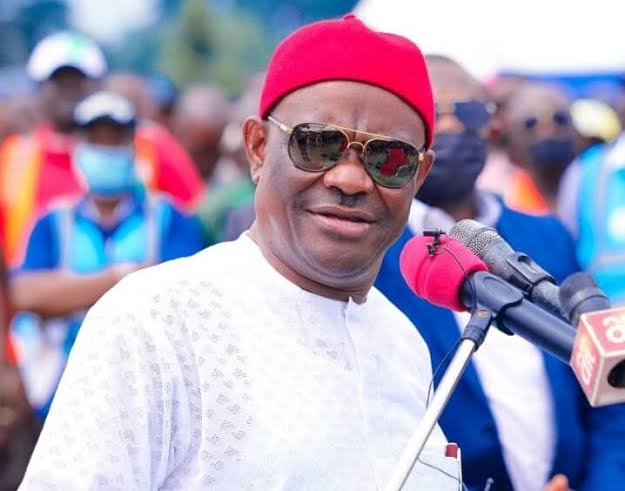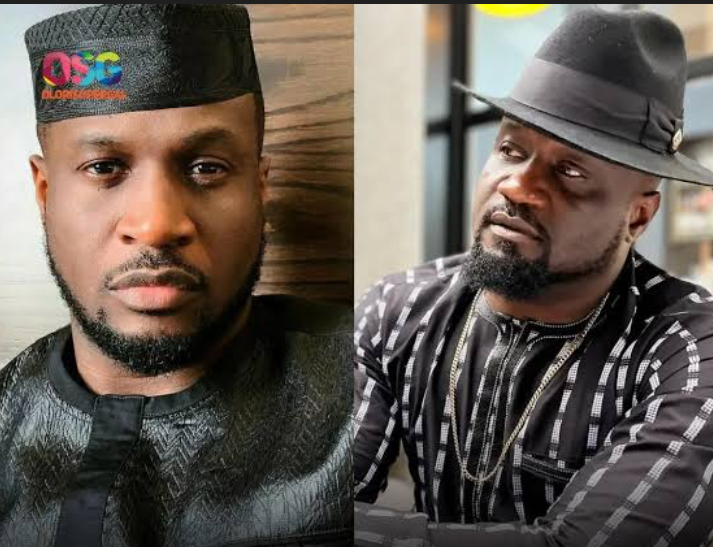
Power, Prestige, and Pop Culture: Davido’s Visit to Senate President Akpabio Sparks National Buzz

In an unexpected blend of celebrity glamour and political gravitas, Nigeria’s globally celebrated music icon David Adeleke, known to millions as Davido, turned heads with a high-profile visit to Senate President Godswill Akpabio in Abuja this week. The meeting, which also featured nightlife mogul and internet sensation Pascal Okechukwu—aka Cubana Chiefpriest—has set social media abuzz, with fans, political analysts, and everyday Nigerians speculating about what might have transpired behind closed doors.
The occasion came to light when Cubana Chiefpriest posted a video clip on his Instagram account, capturing a moment of camaraderie and diplomacy. The Senate President, clad in traditional attire and exuding statesmanlike composure, addressed the entourage while holding a document. The gathering, though brief on details, radiated significance: here was a rare confluence of entertainment royalty and Nigeria’s legislative elite.
As the cameras flashed and the trio posed for photographs, it became instantly clear—this wasn’t just a polite visit. It was a statement. A message to the nation, perhaps even the world, about the growing proximity between two spheres that have often walked parallel but separate paths: pop culture and politics.
Cubana Chiefpriest’s caption accompanying the video fueled curiosity further. “Try as much as possible to get close to people who look exactly like your future. Abuja nights with Naija 003. Person wey get OBO too get power,” he wrote, blending motivation with subtle political commentary. OBO, short for "Omo Baba Olowo," is Davido's signature alias, referencing his wealthy roots and his rise to stardom. But the caption suggests something more layered—power not just in music, but possibly in influence that stretches to national governance.
Reactions came swiftly. Social media turned into a forum for praise, skepticism, and sharp analysis. While some fans viewed the moment as an encouraging sign of synergy between influential figures, others were quick to question the true intent of the visit. Was it a strategic alliance? A social courtesy? Or the beginning of something with deeper implications?
One Instagram user, @Unusual_Mimi14, sounded a cautionary note: “Pascal, na Akpabio be that o, no believe anything em tell you o. All na politics.” Another, @Godwinkessi, offered a more cynical interpretation: “These people wey scatter Nigeria. Sha Doro I like as u dey take confuse everybody even me, today you’re in PDP tomorrow APC. Don Dorobucci.” The commentary revealed not just reactions to the moment, but to the broader undercurrent of Nigeria’s political ambiguity and public skepticism.
Still, others chose to look at the bigger picture. “The rich are busy making more connections and the poor are busy quarreling over the rich that doesn’t care about their existence,” wrote @Topchild_. It was a reminder of the stark realities many Nigerians face daily—and how moments like these can symbolize both hope and frustration.
But beyond the online debates, this meeting between Davido, Cubana Chiefpriest, and Senator Akpabio speaks to a larger cultural shift in Nigeria. In a country where youth and creativity continue to clash with political inertia, moments like this bridge the gap—however briefly. Davido, a megastar with a global fanbase, represents a generation that wields soft power through music, fashion, and digital influence. Senator Akpabio, on the other hand, symbolizes traditional power—law-making, governance, and national policy.
The convergence of these forces is no coincidence. Nigeria’s youth are increasingly politically aware. The #EndSARS movement, which Davido vocally supported, revealed how influential entertainers can be when they throw their weight behind a cause. For politicians, aligning with these figures can enhance public perception and reach demographics that are often disengaged from formal politics.
What exactly was discussed during the meeting remains undisclosed. Neither Davido nor Senator Akpabio has issued a formal statement. But the visuals, the body language, and the public response indicate that the implications of this meeting stretch far beyond photo ops.
Was this the beginning of a new form of political engagement for Davido? Could he be exploring advocacy, influence, or even policy advisory roles? Or was this simply a symbolic nod to mutual respect and recognition? These are the questions stirring the national conversation.
In a time when celebrity status can rival political clout, the lines between the two are becoming increasingly blurred. Davido has long used his platform for more than just music. Whether supporting charitable causes, advocating for youth rights, or simply speaking truth to power on social media, he has positioned himself as more than an entertainer.
And Akpabio, a seasoned politician with a reputation for political strategy, understands the optics. A handshake with Davido is more than diplomacy—it’s a signal to Nigeria’s youth that the political sphere is watching, listening, and perhaps, adapting.
What remains to be seen is whether this was a one-time spectacle or the first chapter in a deeper narrative. Will Davido use this moment to further step into the political spotlight? Will Akpabio leverage the partnership to appear more in touch with Nigeria’s younger generation? Or will the buzz fade with the next trending topic?
Regardless of what the future holds, one thing is certain: the walls between influence and authority are crumbling. In a digital age where one post can ignite a national debate, Davido’s visit to Senator Akpabio has done more than just trend—it’s reshaped the conversation about power in Nigeria.
For now, Nigerians are watching. And whether with hope, skepticism, or admiration, they are paying attention to a new era where the microphone and the gavel just might share the same stage.


